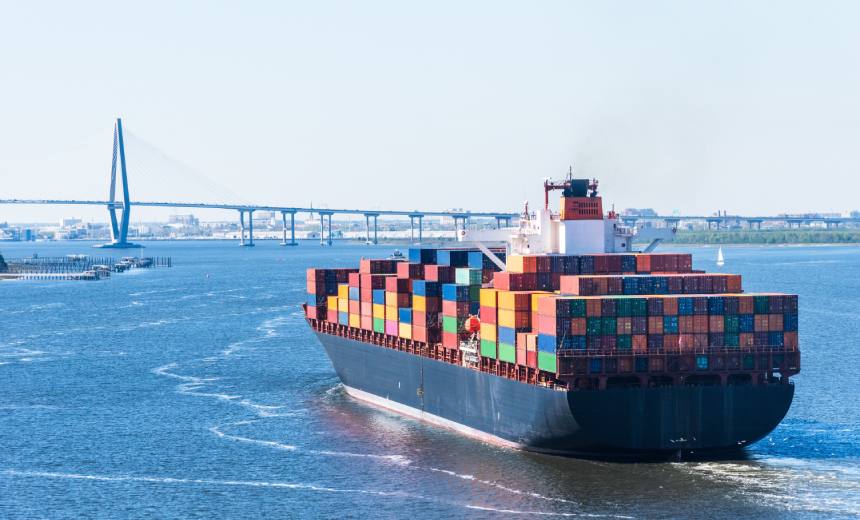Government,
Industry Specific,
Regulation
Experts Warn Proposed Budget Cuts Could Undermine Security Investments and Disrupt Supply Chains

A proposed $20 billion federal initiative designed to enhance cybersecurity at U.S. ports may be at risk due to a funding freeze suggested by President Donald Trump. Security analysts have voiced alarm over the potential impacts of failing to modernize commercial ports at a time when China is intensifying its investments in port infrastructure across the Western Hemisphere, as outlined in congressional testimonies.
In 2024, the Biden administration introduced a maritime infrastructure initiative that promised over $20 billion to bolster port security during the next five years through various grants. Following this, the White House issued cybersecurity guidance mandating incident response plans within the marine transportation sector, as experts noted Beijing’s increasing dominance in the ship-to-shore crane market and critical maritime software crucial for global trade (refer to: Biden Issues Final Maritime Cybersecurity Rules).
Experts have cautioned the House Homeland Security Committee that the funding commitments made by the previous administration under Trump are now in jeopardy, potentially postponing essential port upgrades and cybersecurity measures. This funding freeze could leave U.S. ports vulnerable to cyber intrusions from Chinese actors and disrupt global supply chains.
American Association of Port Authorities CEO Cary Davis informed lawmakers about the staggering scale of attempted cyber incursions at major gateway ports, asserting that many receive millions of intrusion attempts monthly. He emphasized that federal funding has been essential in updating outdated infrastructure with modern technologies, including machine learning systems and artificial intelligence-driven security defenses.
Davis further underscored the importance of the grant program, stating that the projects it supports are critical for addressing the evolving threats faced by ports.
In the wake of Trump and advisor Elon Musk’s advocacy for the funding freeze and cutting diversity, equity, and inclusion initiatives, government agencies have scrambled to issue stop-work orders for key contractors. Experts have reported that such abrupt changes have created uncertainty among federal cybersecurity vendors (see: Federal Cybersecurity Contractors Whiplashed By Uncertainty).
Matthew Kroenig, senior director at the Scowcroft Center for Strategy and Security, highlighted the inability of the U.S. government to compete with China’s subsidized infrastructure on cost or scale, but he noted that there are other strategic advantages available. He advocates for private sector investment initiatives and enhanced maritime collaboration with allies in the Indo-Pacific region, such as Australia, Japan, and South Korea.
Kroenig suggested the United States, alongside its partners, should inspire Western Hemisphere nations to adopt a risk-aware approach concerning China, advocating for a “hard decoupling” in critical sectors, including telecommunications, advanced technologies, and defense cooperation.
The push by Musk to curtail federal funding has drawn criticism from Democrats on the House Transportation and Maritime Security Subcommittee. Representative LaMonica McIver, D-N.J., condemned Republican support for the cuts, pointing to reports of Musk’s team gaining access to sensitive federal systems.
In her remarks, McIver stated, “If my colleagues were truly as concerned as they claim to be about the PRC’s access to critical U.S. infrastructure and information, they would not condone jeopardizing their constituents’ data by granting access to an unelected billionaire with uncertain intents.”
